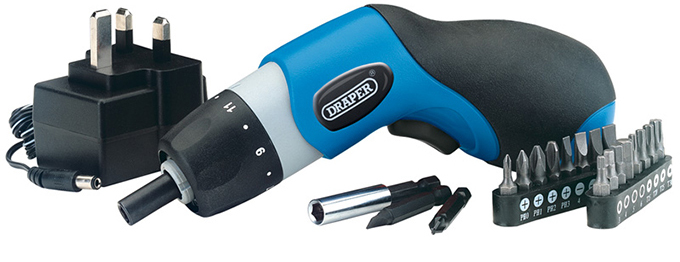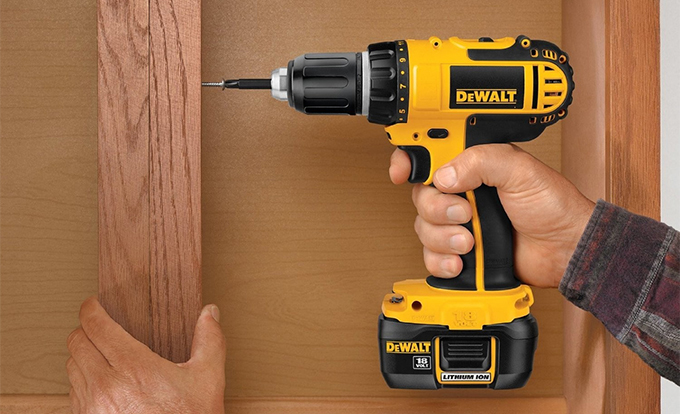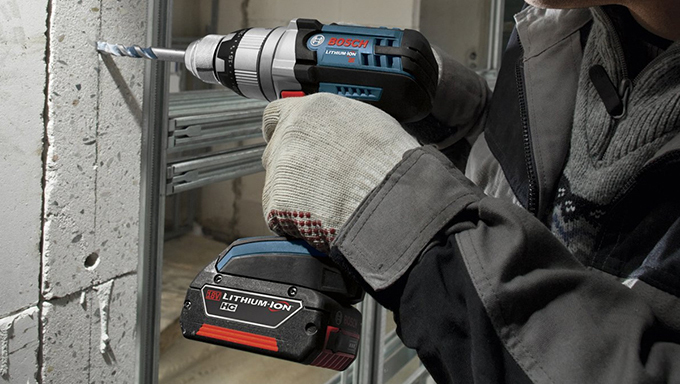There are several different types of cordless drills available on the market each designed to excel at a different task. But which one is suitable for your task, lets look at the different types of cordless drills and explain what task(s) they are suitable for.
We begin with the cordless screwdriver which is a basic cordless aimed at the simple task of screwdriving and nothing else. These drills are compact and lightweight and generally do not have any extra features. These cordless tools are ideal for the construction of flat packed furniture and other household tasks where you do not require a large amount of power.

A step up are cordless drill drivers which can perform a range of tasks and although larger than cordless screwdrivers are still light, compact and comfortable to use. These cordless drills are capable of screwdriving, drilling wood and drilling metal. The cordless drill driver will feature torque settings when screwdriving which make it a more versatile tool for the job, the torque setting can be set to allow the chuck to slip when a screw has been sunk into the wood as far as it ill go. Cordless drill drivers will drill wood and/or metal and are usually fitted with two speed settings to make drilling these materials easier. The size of holes the tool will drill will depend on the voltage and the quality of the machine.

Cordless Hammer Drill Drivers or combination (combi) hammer drills are similar to the drill drivers only they also have the ability to drill masonry or concrete. The cordless combi drills are generally more heavy duty and a great all-round tool. Like the drill drivers they still have the torque settings to allow the ability to put screws in with ease. The cordless combi drills drill into wood, metal and masonry and again have two speeds (in some tools three speeds) to allow drilling into these materials easier. Like the drill drivers the diameter of the holes and size of screws these tools will drill depends on the voltage of the battery and quality of the drill.

Finally we have cordless SDS drills which are primarily designed for drilling masonry and concrete applications. Although they can still drill timber and metal with the use of a chuck adaptor they are not ideal for these applications. SDS drills differ from standard cordless drills because of how they operate. They push the drill bit back and forward inside the chuck while spinning giving a greater force and faster operation. Cordless SDS drills are sometimes complete with a rotary stop facility which allows them to do light chiselling and tracking. Again the size of the holes the cordless SDS drill can achieve depends on the battery voltage and quality of the tool.
If you have any questions or need any advice on any of the cordless drills Ray Grahams supply please do not hesitate to
contact our sales team who will be happy to help and recommend the right tool for you.